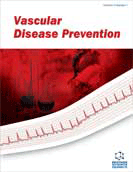Abstract
In atherosclerosis overactivity of matrix metalloproteinases (MMPs) is thought to contribute to plaque instability. In the present study we investigated in patients with acute coronary events: a) the longitudinal course of plasma levels of MMP-9, MMP-2 and of tissue inhibitors of metalloproteinase-1 and -2 (TIMP-1, TIMP-2), b) any association between MMPs and TIMPs with soluble markers of platelet activation (sP-selectin, sCD40L) or endothelial activation (sVCAM-1), and c) any effect of statin therapy on these parameters. Forty-one men with unstable angina pectoris (n=17) or myocardial infarction (n=24) were examined during the acute phase and nine months later. Plasma levels of MMP-9, MMP-2, TIMP-1, TIMP-2, as well as sP-selectin, sCD40L and sVCAM-1 were measured. Half of the patients from both groups received statin treatment. In the acute phase upregulation of MMP-9 and TIMP-1 and downregulation of MMP-2 was observed, congruent with the pattern of inflammatory stimulation of cells in vitro. The dysregulation of MMP-2 and TIMP-1 persisted in the chronic phase. Similarly, all cellular activation markers were upregulated in acute disease and attenuated only partly in the chronic phase, indicative of a permanent inflammatory state. Statin therapy effectively lowered lipid levels, but had no impact on MMPs or cellular activation markers. MMP-9 is a sensitive marker of acute coronary disease, whereas the continuous dysregulation of MMP-2, TIMP-1 and of cellular activation markers in both acute and chronic phases of coronary disease is indicative of persisting inflammatory stimulation. Current results fail to support a relevant anti-inflammatory effect of statins in chronic coronary disease.
Keywords: matrix metalloproteinases, timps, endothelial activation, platelet activation, angina pectoris, myocardial infarction, statins, infarction
 1
1

